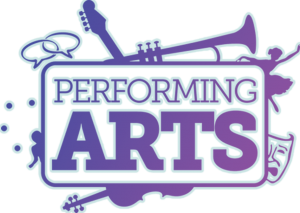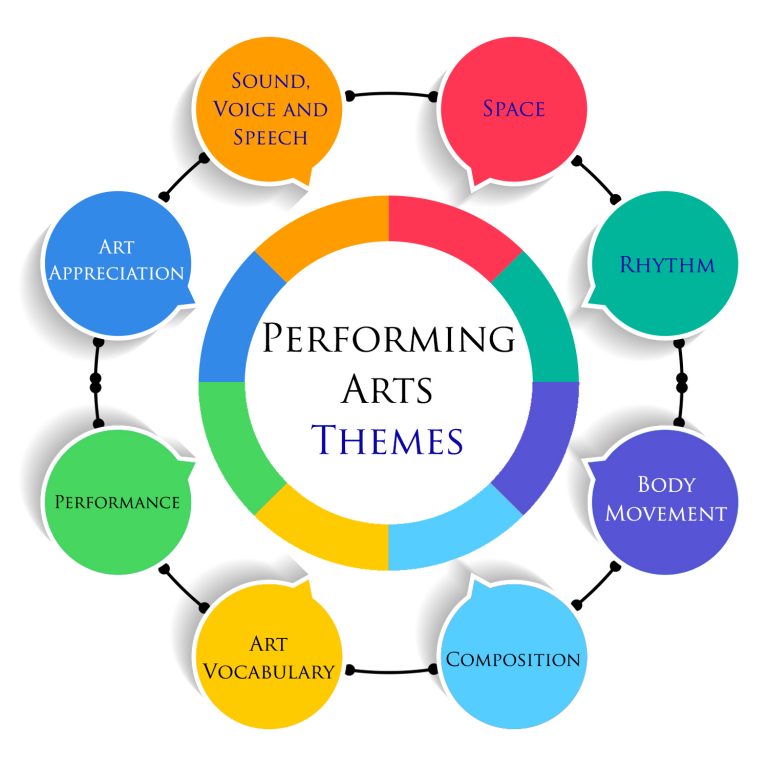In education, Arts (Performing Arts as well as Visual Arts) play a key role in the cognitive, affective and psycho-motor development of a child. It helps them in modes of expression, visualising, scenario building, creative problem solving, as well as divergent, critical and reflective thinking. Experiencing Arts during the school years gives children avenues to nurture creativity which makes them contributing citizens.

Performing Arts
The Performing Arts (Music, Dance and Theatre) in education provides children with the opportunity to engage the mind, the body and the emotions into a collaborative and holistic expression of all that it means to be human. Through studies and performance, children get opportunities to explore and present various themes and ideas. They discover their own voice, their confidence grows, they develop empathy and ethical insight, which helps them in understanding what it means to not only be human, but to be noble, kind and compassionate.
Objectives of Learning Performing Arts
Achieving a balanced education is just one of the benefits of studying performing arts. Education in performing arts also helps children to:
- celebrate the richness and depth of human expression in all its forms. Children learn to comprehend the world better and are therefore better equipped to navigate the challenges they might face after completion of their schooling.
- develop important life skills as they learn the value of critical feedback, both positive and negative.
- develop their cognitive abilities that complement study in other disciplines. Further, it builds confidence which helps in public speaking. The talent and skills that children discover through the Arts can form habits which transcend all areas of study.
- communicate better with peers and others as they are exposed to group activities. This experience also provides them the opportunity to display leadership qualities.
- find their ‘voice’. They may discover that they are natural leaders. It builds their self-confidence and can be particularly beneficial for those children who are introverted by nature.
- experiment with their personal space where they are able to immerse themselves in a creative environment. It is a natural precursor to a well-developed sense of self.
- develop individuality, sense of self and self-identity including personal and social identity.
- learn, rehearse and practice, a variety of emotions. Children may find it difficult to express their emotions at times, but the arts provide a great outlet to them, to explore a great range of emotions including delight, anger, hatred, fear and spirit of freedom. This exposure and experience can also help them understand the sense of independence and interdependence.
At FNIS, Performing Arts will be taught as part of the curriculum. It will be taught based on the themes shown below.

